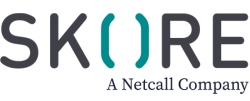The Increased Adoption of Remote Working
Legal Industry Trends of 2023
This post was written by Adam Harbon
As we’ve already discussed in my previous blog, according to a legal industry trends report from Clio, three of the top challenges Legal firms will face in 2023 are:
- Lawyers experiencing the “Great Resignation” trend.
- The increased adoption of remote work, providing flexibility but also causing work-life balance issues.
- The impact of inflation and a potential recession.
In the second blog of this legal mini series, I am exploring challenge number two indicated within the Clio Report: The increased adoption of remote work within the legal industry.
Skore looks for the opportunities for Process Optimisation within legal firms but additionally there are even more incredible benefits. Read on to learn more about how implementing a dynamic, insightful and engaging process platform is a way to ensure a productive, sustainable remote working model that could save you money.
Interestingly the CEO of LinkedIn recently posted the following:
‘Before Covid ~1% of jobs were remote. Today, its ~14%. BUT.. 50% of all job applications on LinkedIn, were for those 15% of remote jobs.’
What more evidence do we need that people want to work from home?
To ensure a productive work from home environment however we need to develop a relationship where we provide the correct processes to support that. This demand for a better work\life balance isn’t about to go away. So how do you, as an organisation, embrace it, source the best people to do the job and continue to achieve company objectives in a timely and effective manner?
Last week I spoke with a Head of Legal Technology Operations at a top tier legal firm in the UK. He explained to me that they are struggling with process adoption for remote workers. The current state at this firm was they had a multitude of disparate platforms used for process capture and delivery (MS Visio, Excel, Lucid Charts, Process Documentation within Word). Remote workers struggled to find and access the correct and most updated version of a process to carry out their day to day activities thus impacting productivity and efficiency.
The Head of Legal Technology Operations went on to say that remote workers are currently spending a minimum of 5% (2 hours) of their week just looking for the correct process to follow. Just take a moment to consider the impact of this loss of hours…
The average UK solicitor salary is £62,000 (source: Law Society). Lets take a look at a legal firm of 500 and assume 20% of the employees are lawyers and 50% of them work from home.
Average costings of a Lawyer
- Annual Cost: £62,000.00
- Weekly Cost: £1,192.30
- Hourly Cost: £29.80
Hourly cost x 2 (5% of the working week) = £59.60
50 remote workers = weekly cost of poorly accessible process: £2,980.00.
This weekly cost across 52 weeks a year equates to: £154,960.00!
In fact this same process challenge is also faced by office workers, you should also add another cost of £154,960.00 for the 50 remaining lawyers who are office based.
Therefore the cost of poor process just for 100 lawyers within a 500 employee legal firm is: £309,920.00 per year.
This cost model does not take into account the remaining 400 employees who will also be suffering from poor processes or the loss of time it takes to ask colleagues for help. In addition we haven’t even considered the implications of someone not following the right process: Compliance Issues, HR Problems or even Decreased Customer Satisfaction.
So how do you solve this issue, easily and rapidly?
Skore addresses this challenge by implementing a universally understood process standard: UPN and a centralised easy to access process improvement platform. UPN is designed so everyone in your organisation can read and understand your processes whether you are in the office or at home. There is no confusion or misinterpretation and the information you need is at your fingertips. It’s a no brainer.
The question is, as a legal firm, can you really afford not to implement a standardised process improvement platform?
If you’d like to know more about how Skore is helping legal firms or for a summary of the potential you could recognise from implementing Skore – get in touch. I’d love your feedback either way so please comment or contact me at: adam.harbon@getskore.com
